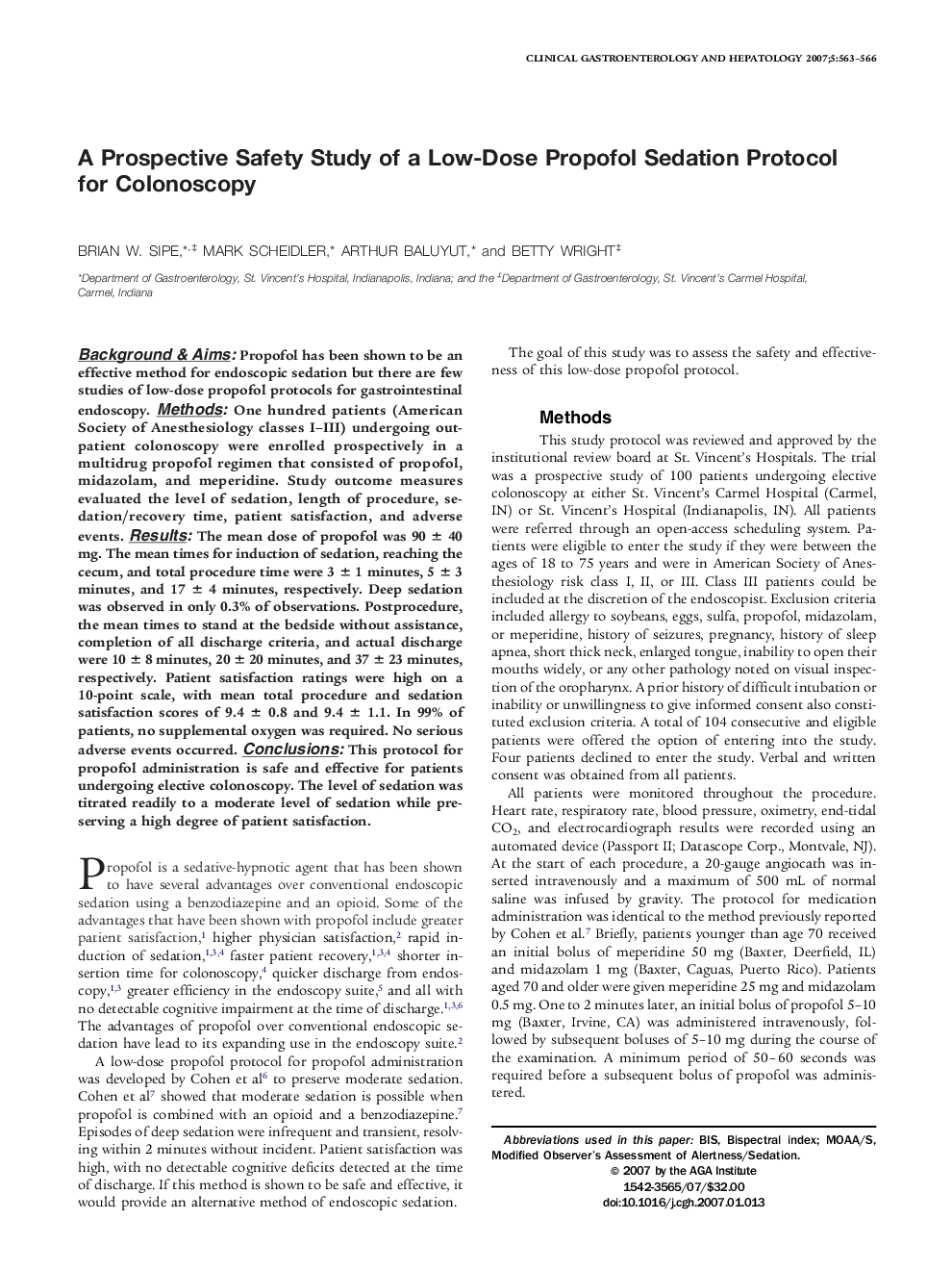| Article ID | Journal | Published Year | Pages | File Type |
|---|---|---|---|---|
| 3285585 | Clinical Gastroenterology and Hepatology | 2007 | 5 Pages |
Abstract
Background & Aims: Propofol has been shown to be an effective method for endoscopic sedation but there are few studies of low-dose propofol protocols for gastrointestinal endoscopy. Methods: One hundred patients (American Society of Anesthesiology classes I-III) undergoing outpatient colonoscopy were enrolled prospectively in a multidrug propofol regimen that consisted of propofol, midazolam, and meperidine. Study outcome measures evaluated the level of sedation, length of procedure, sedation/recovery time, patient satisfaction, and adverse events. Results: The mean dose of propofol was 90 ± 40 mg. The mean times for induction of sedation, reaching the cecum, and total procedure time were 3 ± 1 minutes, 5 ± 3 minutes, and 17 ± 4 minutes, respectively. Deep sedation was observed in only 0.3% of observations. Postprocedure, the mean times to stand at the bedside without assistance, completion of all discharge criteria, and actual discharge were 10 ± 8 minutes, 20 ± 20 minutes, and 37 ± 23 minutes, respectively. Patient satisfaction ratings were high on a 10-point scale, with mean total procedure and sedation satisfaction scores of 9.4 ± 0.8 and 9.4 ± 1.1. In 99% of patients, no supplemental oxygen was required. No serious adverse events occurred. Conclusions: This protocol for propofol administration is safe and effective for patients undergoing elective colonoscopy. The level of sedation was titrated readily to a moderate level of sedation while preserving a high degree of patient satisfaction.
Keywords
Related Topics
Health Sciences
Medicine and Dentistry
Gastroenterology
Authors
Brian W. Sipe, Mark Scheidler, Arthur Baluyut, Betty Wright,
